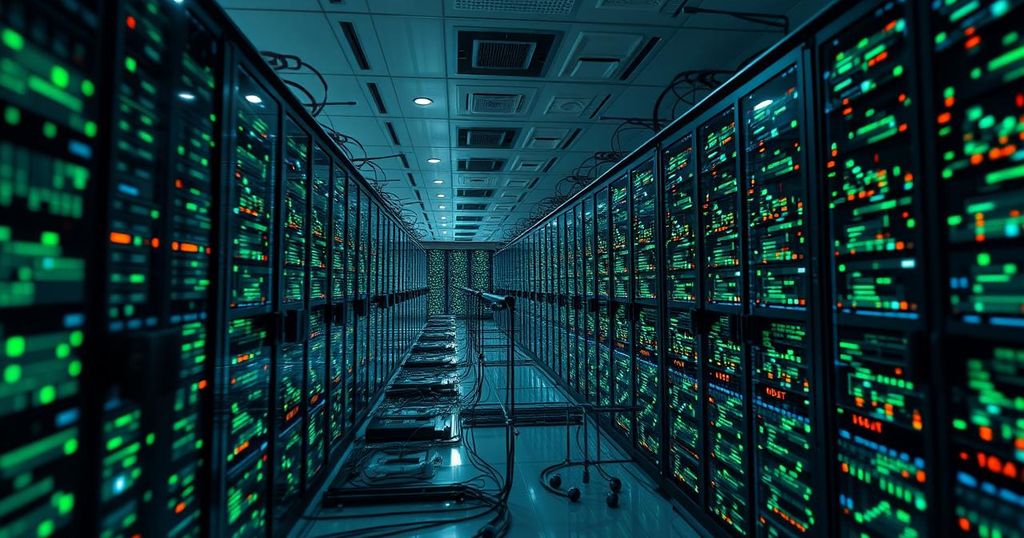Could AI Data Centers Actually Slow Climate Change?

The rapid expansion of AI technologies has resulted in increased energy consumption by data centers, leading to higher emissions predominantly from fossil fuels. While nuclear energy provides a potential low-emission alternative, public distrust stemming from past nuclear disasters has slowed its adoption. Recent actions by Microsoft, Google, and Amazon to invest in nuclear power, particularly small modular reactors, may pave the way for more sustainable energy solutions aligned with the growing power needs of AI applications.
The surge in artificial intelligence (AI) applications has prompted a significant increase in power consumption, particularly within massive data centers, which are heavily reliant on electricity generated from fossil fuels. Google recently reported a 50% increase in emissions over the past five years, despite its efforts to achieve carbon neutrality. According to McKinsey, the reliance on data centers for power is projected to escalate, comprising 11-12% of the United States’ overall power consumption by 2030, a sharp rise from current figures. Nuclear energy presents a viable alternative to fossil fuel-based power systems as it produces no greenhouse gas emissions. This form of energy can act as a stable, non-renewable supplement compared to solar and wind energy, which are dependent on environmental conditions. However, historical nuclear disasters such as those at Three Mile Island, Chernobyl, and Fukushima have engendered public distrust and opposition, prompting countries like Germany to decommission their nuclear facilities in favor of natural gas. Traditional nuclear power plants are fraught with high costs and lengthy construction timelines, often exceeding two decades. In contrast, small modular reactors (SMRs) offer a promising solution, being smaller and more quickly deployable while also regarded as safer than their larger counterparts. Nevertheless, they have yet to see widespread adoption among U.S. utility companies. Billionaire Bill Gates has been a strong proponent of nuclear power for emissions reduction and has taken action by founding TerraPower, which is currently developing its first SMR facility in Wyoming. Amidst the slow progress in the public sector to expand nuclear energy, major technology firms are increasingly taking matters into their own hands. Microsoft has recently reached an agreement to revive operations at the Three Mile Island facility to fulfill its data center energy needs. Likewise, Google has entered into a partnership with Kairos Power to construct seven SMRs, aiming to have them operational by 2035. Additionally, Amazon Web Services (AWS) has committed $500 million toward three nuclear initiatives, including a collaboration with Dominion Energy to establish SMRs in Virginia and a deal with Energy Northwest for constructing four SMRs in Washington State. These initiatives suggest that the escalating power demands from AI data centers could inadvertently drive advancements in nuclear technology, potentially allowing for the efficient deployment of SMRs to replace outdated fossil fuel plants.
The increasing power demands from AI data centers are concerning as they significantly contribute to greenhouse gas emissions. While traditional energy sources like fossil fuels prove detrimental to the environment, nuclear power presents a cleaner alternative that has historically faced skepticism due to safety concerns. Recent movements by major tech corporations to embrace nuclear energy solutions reflect a possible paradigm shift toward more sustainable, low-emission energy sources that could address the rising energy needs of technology-dependant society. The development and deployment of small modular reactors may offer a viable path to mitigate climate change while ensuring that energy demands are met effectively.
To summarize, as the technological landscape evolves, the substantial energy consumption required for AI applications poses a significant challenge for climate change mitigation. However, the recent announcements from Microsoft, Google, and Amazon regarding investments in nuclear energy, specifically in SMRs, may signal a turning point toward achieving cleaner energy solutions. If executed effectively, these projects may not only provide necessary energy for data centers but also contribute to reducing overall greenhouse gas emissions, marking a potential shift in how both technology and energy sectors can collaboratively respond to climate challenges.
Original Source: www.forbes.com







